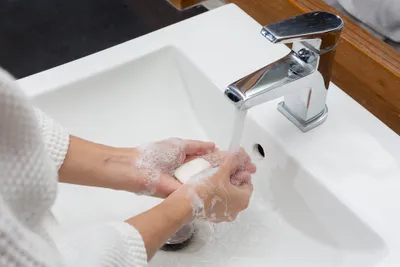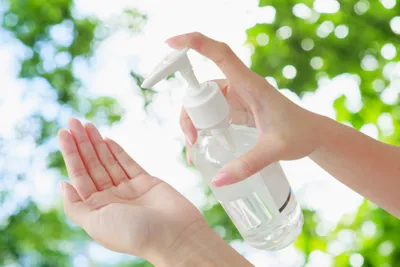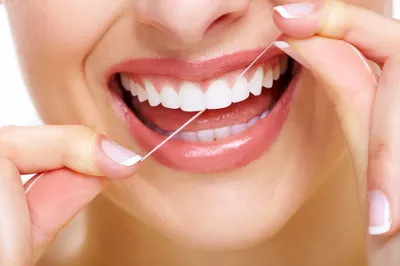As a society, we are (mostly) obsessed with keeping ourselves clean and tidy—largely for cosmetic reasons. However, there are other very important reasons to keep yourself groomed, and they’re about your health.
A variety of ailments can spring up from neglecting your hygiene. However, Americans may be overdoing it, according to some new research. Let’s brush up on seven interesting facts about personal hygiene…
1. You Don’t Need to Shower Every Day?
A recent Lifehack.org article suggests your daily shower routine may be more than is required. In fact, it goes as far as to say you may actually be doing yourself more harm than good by standing under the water each morning.
The article cites research that too much showering with soap can remove essential oils from your skin—this causes your skin to dry up and get a rough texture. Scrubbing daily can destroy the top layer of skin that protects layers underneath, it notes, adding “good” bacteria that protects you from infection doesn’t have a chance to thrive when you shower every day.
2. Lend a Hand to Health
Livestrong.com notes that when it comes to important places to keep clean, “your hands hold the key.” That means common viruses are often spread to your mouth via your (unwashed) hands. Similarly, you can get sick by eating food that has been touched by other people’s dirty hands.
You were probably nagged by your parents to wash your hands before meals, and it turns out they had a good point: the source notes you should scrub your hands and wrists before a meal, and after using the toilet. This rule applies even after petting an animal. A good 20-second scrub with hot water should do the trick.
3. Choose your Hand Sanitizers Wisely
Speaking of hand hygiene, many people opt to carry around pocket-sized sanitizers to keep their hands fresh throughout the day. However, in June 2016 CNN published an article that explains the Food and Drug Administration is taking a closer look at these sanitizers.
“In particular, the FDA will be investigating whether sanitizers might be harmful to pregnant women and children,” notes the article, adding they contain 2-types of alcohol as well as benzalkonium chloride, which has been shown to kill rodents in large doses. These pocket sanitizers are actually meant to be used only when regular means of hand-washing are not possible or convenient, adds the article.
4. Lack of Hygiene is Not the Only Cause of B.O.
We often associated body odor (or BO) with a lack of personal hygiene, but science says not showering is not the only culprit of this potentially embarrassing problem. Bustle.com lists 12-“sneaky causes” of body odor that aren’t related to hygiene.
Reasons your body emits a less than pleasant smell include eating spicy and sulfur-rich foods, not getting enough magnesium, drinking too much alcohol, and ovulating. Even wearing non-breathable materials like leather can prevent pores from “breathing,” which can also cause a foul smell due to trapped sweat, it adds.
5. Dangerous Surprises in Soap
Soap is an essential part of ridding us of grease and grime while also leaving us smelling fresh, but they’re not all made equally. HealthyWomen.org explains there are 4-toxic ingredients hiding in many soaps that you should avoid.
These four ingredients include synthetic fragrances, parabens (mistaken for estrogen by your body), sulfates (to produce bubbles), and triclosan (a chemical that’s been shown to actually encourage resistance to bacterial cleansers). Your body absorbs nutrients through the skin as well as through eating, adds the source, so presumably the harmful contents of soap could be making their way into your system.
6. Facial Hair May Provide a Home for Germs
Beards are cool (well, at least they were in 2016), but they also might be kind of gross from a hygiene perspective, notes an article in the Daily Mail UK. The article cites a medical professional that explains, “having facial hair can lead to more frequent skin infections and to germs being passed on to others.”
This is because beard hair is “coarser” than other types of hair, and therefore traps more dirt and germs, according to the source. Food and mucus can also end up in the beard, it adds. But the article also explains a higher count of bacteria due to having a beard is not necessarily a bad thing, and doesn’t constitute a health problem. (Perhaps just keep it nicely trimmed, as opposed to looking like a Viking.)
7. Brush Up on Oral Hygiene
Let’s not forget about the mouth when it comes to personal hygiene—bad breath can destroy even the best of appearances. EveryDay Health explains that mouthwash can be an important ally in maintaining oral health because it helps destroy harmful bacteria.
However, apparently some people out there are relying solely on mouthwash to get fresh breath, and this is a mistake, according to the source. Rinsing with mouthwash “should be the final step in the oral hygiene process both in the morning and in the evening,” adds the source. Brushing twice a day and flossing once a day is key, it explains.










